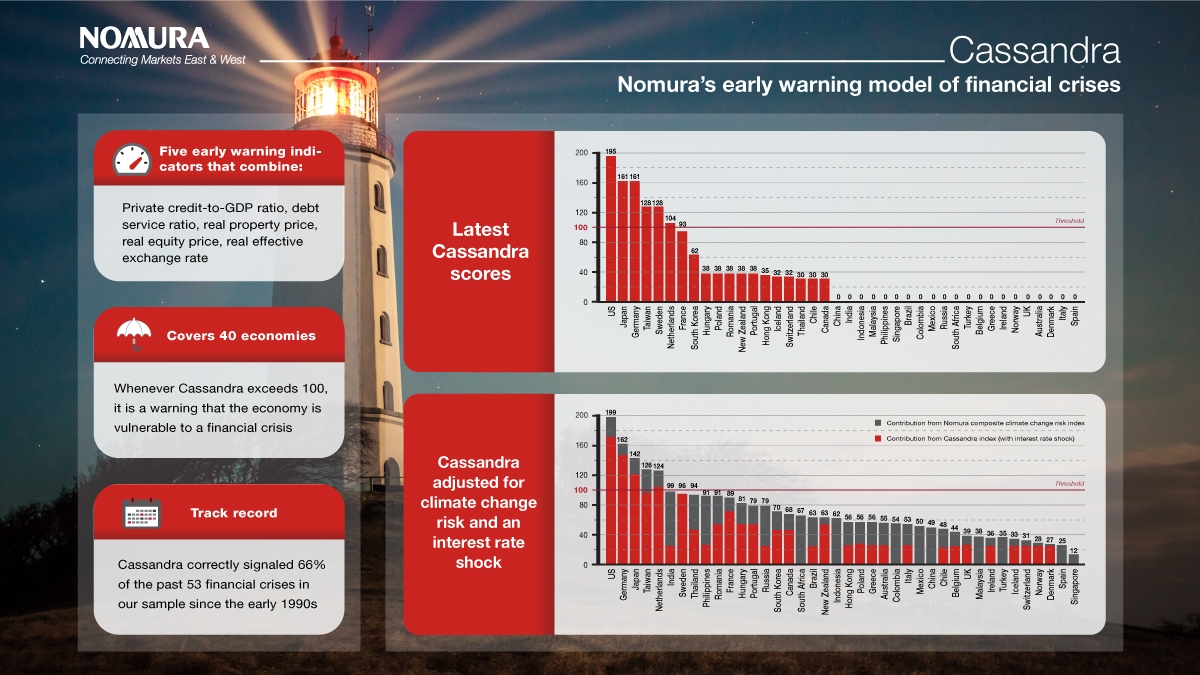The health crisis brought on by Covid-19 forced central banks to cut benchmark interest rates to record lows and delve deeper into quantitative easing. As economies recover, the environment is ripe for debt-fueled asset price booms that, at some point, will unwind. In the past they have often done so abruptly which can cause a credit crunch, or worse still, a financial crisis.
To capture the build-up processes that, in the boom phase, sow the seeds of the subsequent financial crisis, we calculate deviations from long-run trends for five early warning indicators (EWIs): the ratio of private credit to GDP, the debt service ratio, real equity prices, real property prices and the real effective exchange rate. We assign thresholds to each EWI which, when breached, flash a signal of a crisis occurring within the next 12 quarters. We further cut down the noise-to-signal ratio by combining some of the EWIs. We combine the predictive power of six parsimonious indicators by weighting them by the inverse of their noise-to-signal ratios, to produce our composite index, Cassandra.
Cassandra is designed so that whenever the index exceeds 100 it should be interpreted as a warning that the country is vulnerable to a financial crisis within the next 12 quarters. Cassandra is currently warning that out of the 40 economies, six of them, including the US, Japan and Germany, appear vulnerable (scores above 100).
Cassandra’s latest results are positively influenced by very low interest rates that probably will not last. To this end, we stress tested Cassandra to an interest rate shock which produces, in addition to the six economies mentioned earlier, another sizable group of five economies – France, Hungary, Romania, New Zealand and Portugal – with scores not too far from the 100 threshold.
There is increasing recognition that climate change risks have implications for financial stability. We constructed a Nomura composite climate change risk index. We then combined climate change risk and an interest rate shock to Cassandra. Curiously, once Cassandra is augmented for climate change risk and an interest rate shock, the number of countries vulnerable to financial crises drops from six to five (Sweden falls below 100). However, the list of countries with scores between 70-100 lengthens to 10, including seven emerging market economies.
From previous data, we have established that Cassandra has reliably signaled, up to 12 quarters in advance, two-thirds of the past 53 financial crises in our sample of 40 economies since the early 1990s.
Cassandra is a companion to Damocles, our early warning system of emerging markets exchange rate crises.
For a deep-dive into each economy’s Cassandra score, read our full report.







